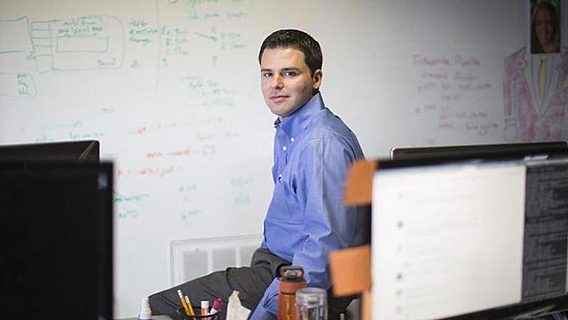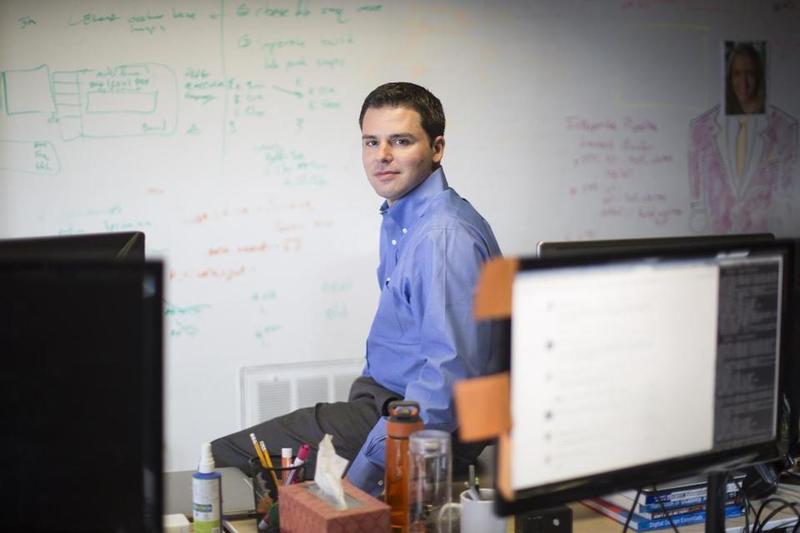
As information piles up, the demand for expert data analysis heats up
This article is part of the upcoming Top Places to Work issue. The names of the companies that made this year’s list will be released online Thursday night.
Jeremy Achin remembers the day when his social network started filling up with people calling themselves data scientists. It was late 2012, shortly after Achin launched DataRobot and Harvard Business Review had just published a 3,000-word report under the headline “Data Scientist: The Sexiest Job of the 21st Century.”

“I saw a lot of people on LinkedIn changing their titles to data scientists — like, rapidly,” Achin says. “But it’s clear that some of these people are not data scientists and can’t actually do the job.”
Who could blame them for posing? Data science is not only sexy (apparently) but also financially rewarding. The annual median salary is $124,150, according to the employment tracking firm CareerCast.
That’s a darn good wage for a profession that didn’t even exist a decade ago. But as companies across many business sectors amass piles of information — big data, in techspeak — they desperately need analytical minds to make sense of it. Combining statistical know-how, computer programming skills, and real-world sensibilities, that’s what data scientists do.
At Boston’s Whoop, for instance, data scientists use biometrics collected by the company’s wristbands to tell athletes whether they are overtraining or undertraining, how much sleep they need, and when their bodies are fully recovered from workouts.
Special section: 2015 Top Places to Work
Read the full list of winners and more stories about worker happiness.
“What you can do is collect massive amounts of data from people, and patterns will start to emerge that show what can increase your chance of winning and decrease your chance of injury,” says John Capodilupo, Whoop’s chief technology officer.
Meanwhile, the data scientists at EverQuote of Cambridge crunch numbers to help auto insurance shoppers find the best policies for their vehicles — whether customers know what’s best or not. “For a data scientist, the job is to figure out the difference between what people say they want and what they really want,” says Hanlu Li, EverQuote’s vice president of business intelligence.
As Achin suggests, people with complete data science tool kits are harder to find than their online profiles might indicate. “It’s a hybrid role,” says Michael Schmidt, chief executive of Nutonian, a software firm in Somerville. “You need to be able to program and at the same time connect what you find back to the business. It’s pretty rare.”






Рэлацыраваліся? Цяпер вы можаце каментаваць без верыфікацыі акаўнта.